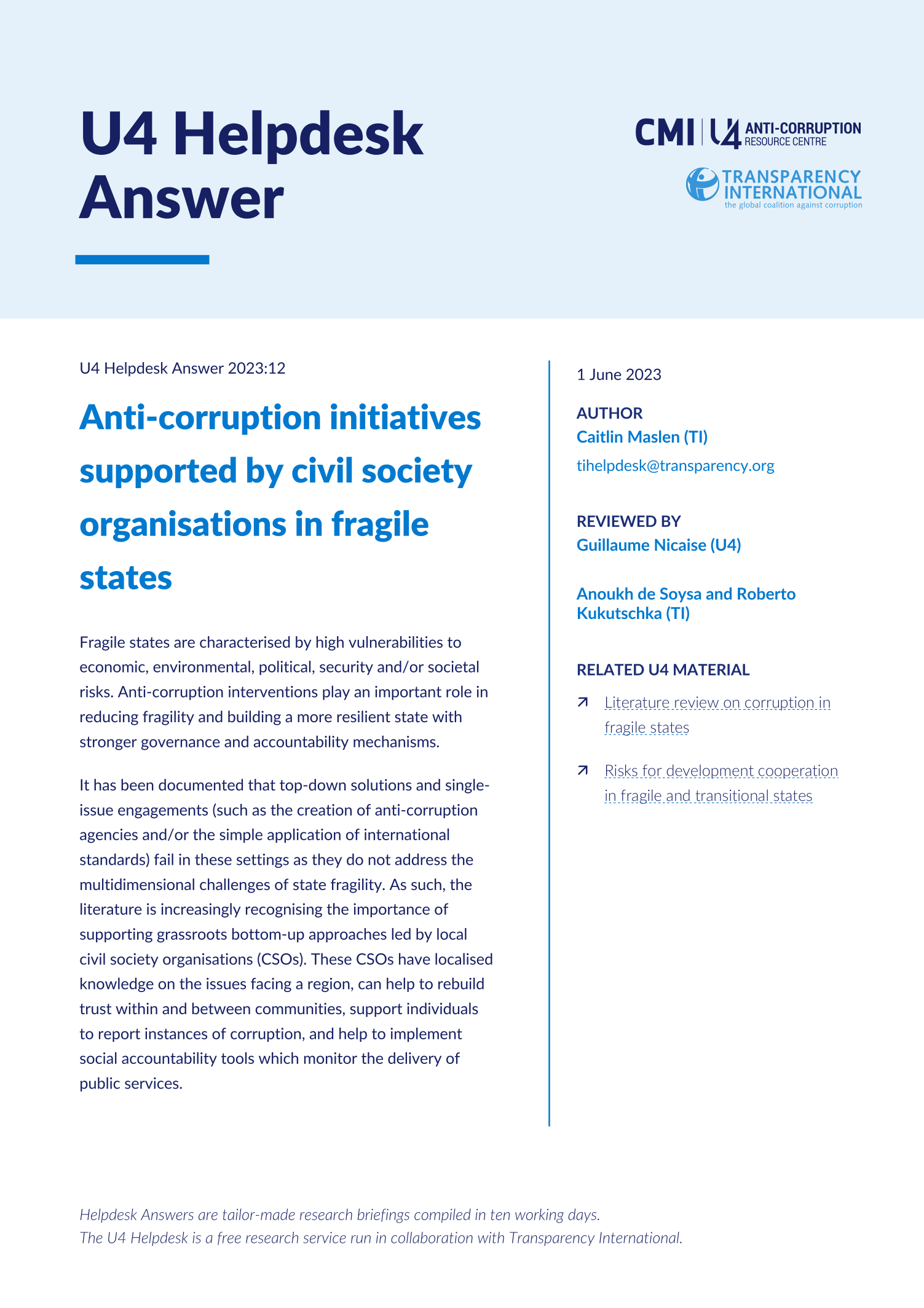Main points
- Corruption levels in fragile settings are often high, and academics and practitioners increasingly agree that corruption should be addressed as early as possible.
- Local CSOs have a key role to play in implementing anti-corruption initiatives in these contexts as they already have knowledge of corruption hotspots and are trusted by communities. They have a role in increasing trust and social cohesion, particularly through supporting public service delivery.
- Other notable CSO led initiatives include supporting citizens to report corruption through advice and legal centres (ALACs), community complaints mechanisms, and advocating for stronger protections for people who report corruption.
- Local CSOs can also drive the use of social accountability tools with community members.
- International donors should focus on partnering with these local organisations in fragile states, provide them with technical expertise where needed, and ensure that their funding is sustainable.

